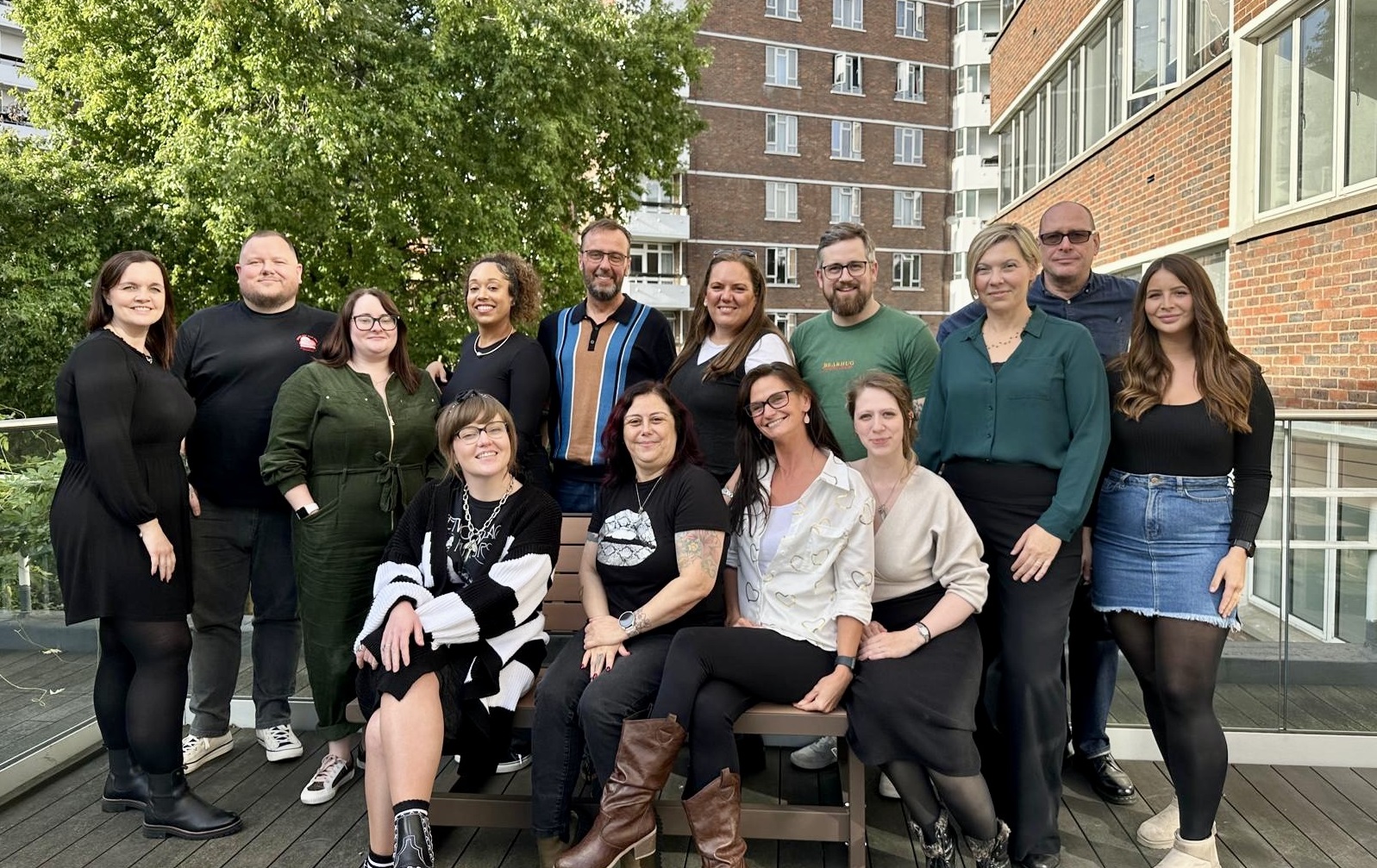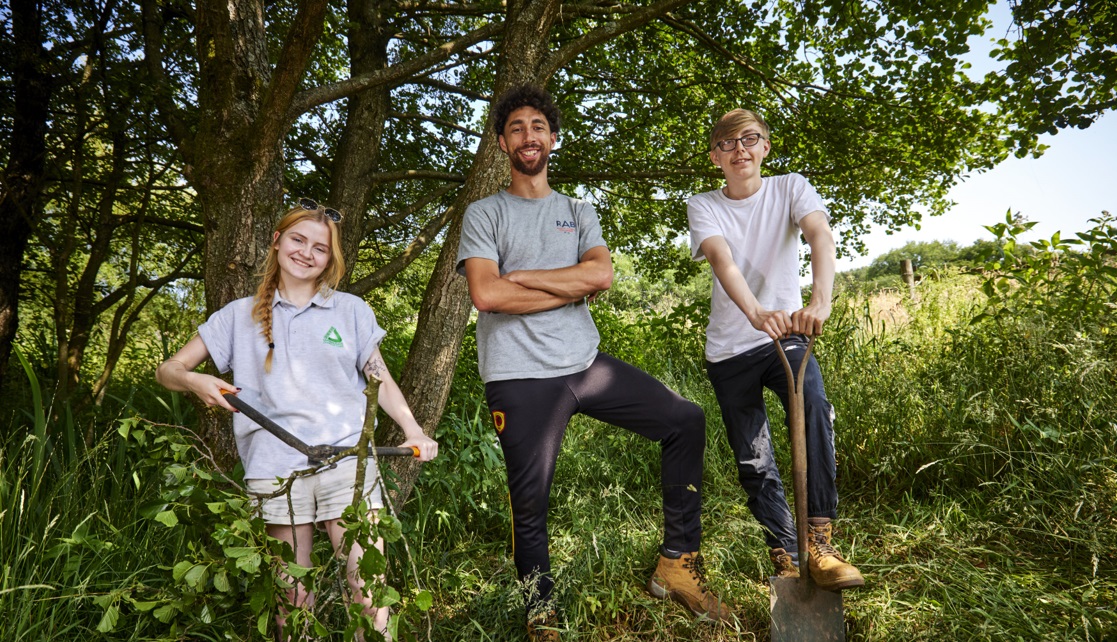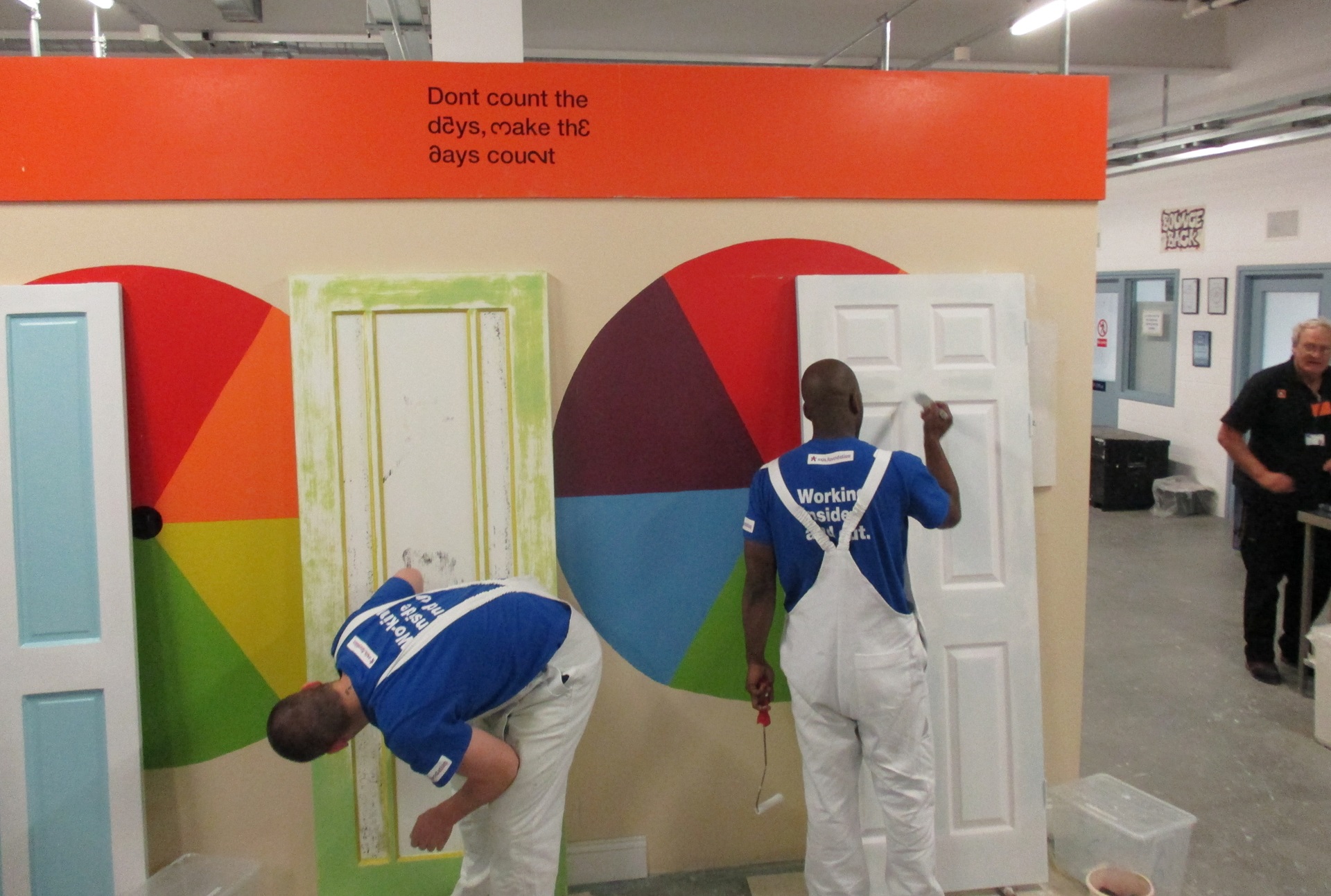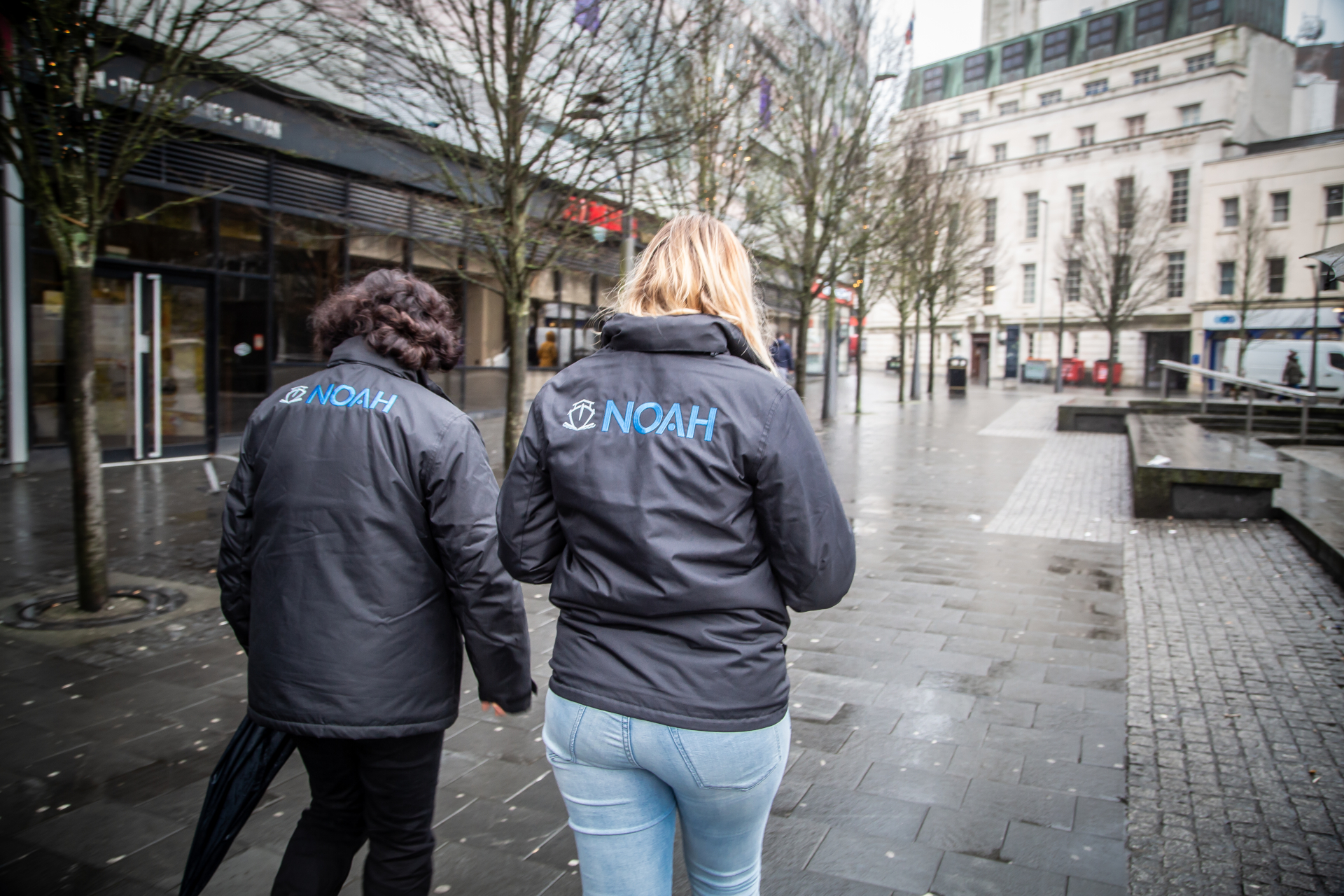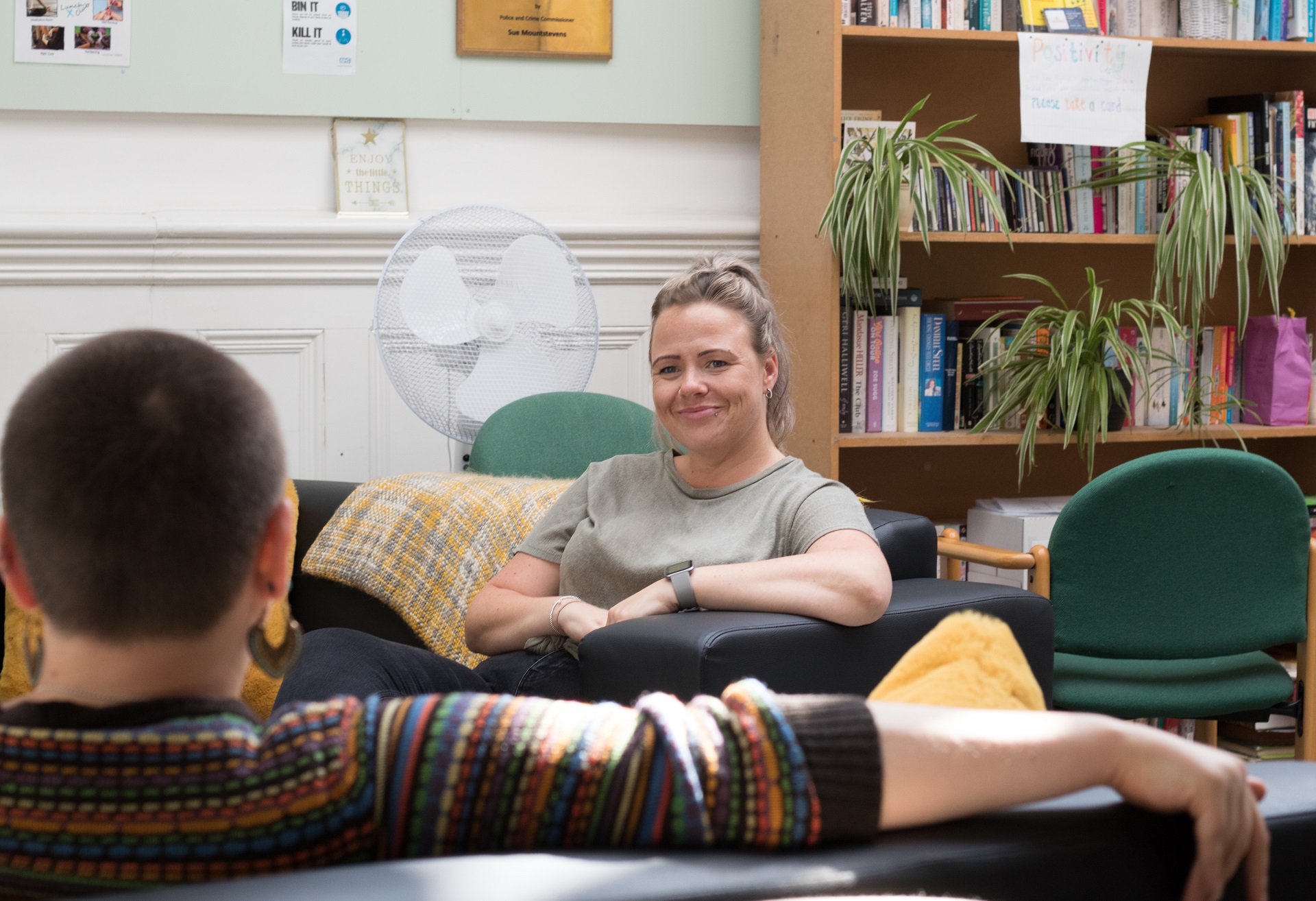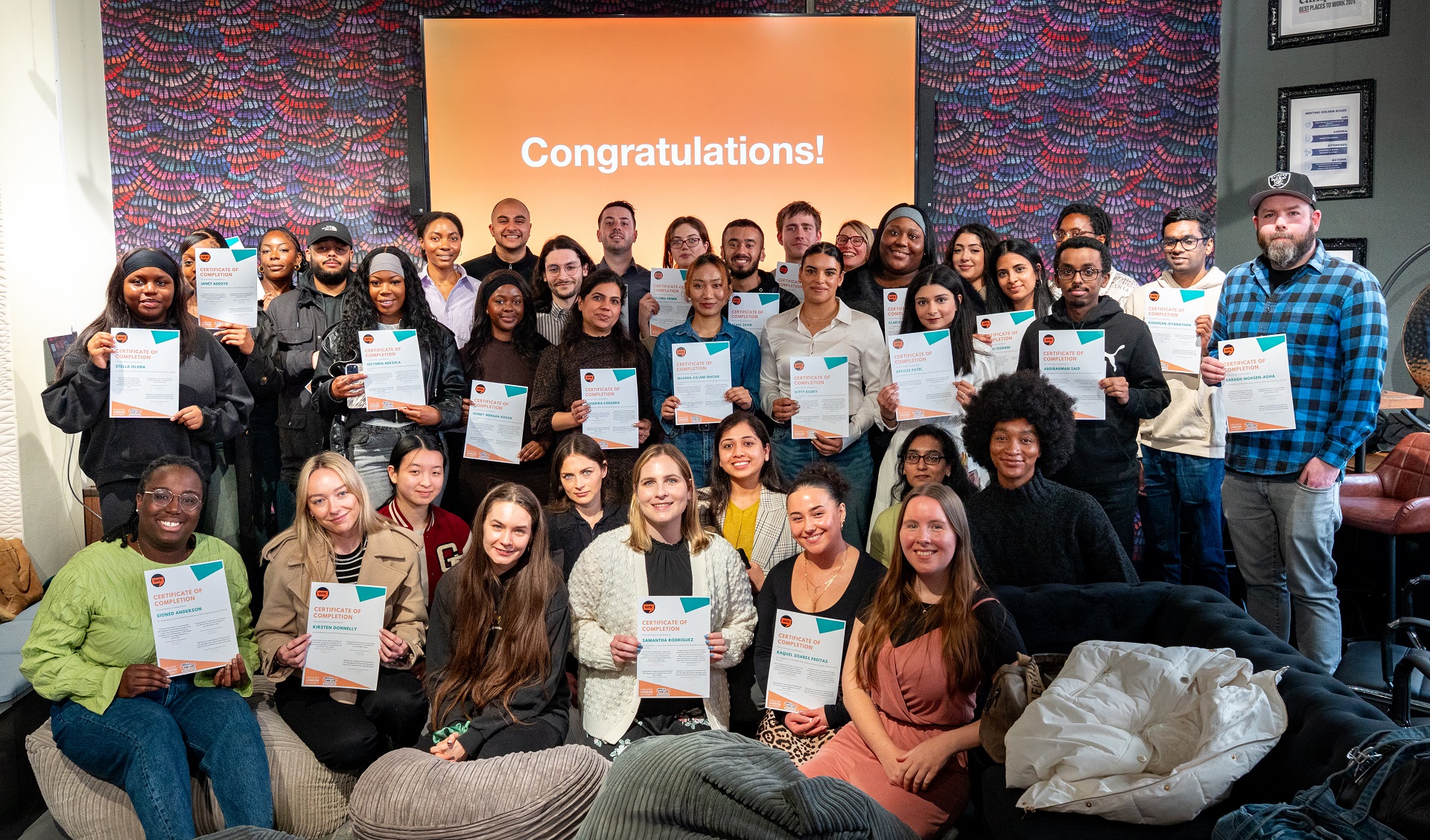
Case studies for commissioners
WYK Digital
WYK Digital (WYK) is a social enterprise set up to ensure that ‘what you know’ outweighs ‘who you know’ in the digital sector. Founded in 2020, it’s on a mission to lower the barriers to entry into digital marketing and technology jobs for young people from underrepresented backgrounds. It does this by running free full-time courses running from 8-14 weeks, focused on specific jobs within the digital careers space. These offer not just technical training using tailor-made, hands-on syllabuses but also help participants develop the soft skills needed in a work environment, such as how to communicate effectively and collaborate with peers. Programmes are set up to meet the criteria of exactly what employers are looking for ensuring that when trainees apply for a job, they are fully prepared. Something that really sets WYK apart and which Rob Jackson, their Founder, describes as its USP, is that after a month of deep dive work on a given digital discipline, participants spend two weeks running live campaigns for a real business. WYK works with 200 small businesses for whom trainees run digital marketing projects using real money. As Rob puts it: “There’s that whole thing of you can't get the job without the experience and you can't get the experience without the job - we give them that real world experience as part of the programme and so they've worked in a professional services environment, with a real client and real budget, and the challenges that come with that.” Around 69% of trainees report going into either full-time work, self-employment or further training after completing programmes. WYK has supported a remarkable 1,000 young people in just four years. In 2024, it helped 400 people gain vital skills and is aiming to support a further 600 in 2025. How does WYK work with government departments? WYKs courses are funded by the Department of Education’s (DFE) Skills Boot Camps, for which WYK won a competitive tendering process. The business is on the DFE’s dynamic purchasing system (DPS) – a platform allowing organisations to respond to callouts for contracts that became available through the department. DPS’s are a great way for VCSEs to engage with government procurement as being on one can cut down procurement times. Sometimes if you’re not on a framework you cannot bid as they effectively are a pre-qualification process. WYK responded to deliver services on the Skills Bootcamp, putting in three bids across three different areas, namely performance marketing (including training on paid online ads), digital bespoke programmatic marketing and ad-tec, and data analytics programmes to upskill young people to become data analysts. The contract is a two-year one with the first half delivered in 2024 and the second half in 2025. What were the main benefits to the DFE of working with WYK? As a social enterprise whose articles of association commit it to lower barriers to entry for underrepresented young people, WYK can showcase extensive impact supporting people launch sustainable and meaningful careers. Just under three-quarters of trainees are from minority ethnic backgrounds and over half come from the three lower indices of multiple deprivation deciles. As Rob puts it: “We can show that not only are we getting people into work, we're actually helping people who would really struggle with the barriers that they're facing to get into meaningful employment.” With the purpose of the contract being to support more people into work, another benefit that WYK brings to the delivery of the contract is its “incredibly strong ties to the industry” with its biggest partners being the largest advertising companies in the world, including Omnicom and GroupM. Out of the big six advertising businesses, it works with half of them. It has a deep and wide relationship with Omnicom, with the business having hired 150 of WYK’s trainees over the last four years. Partnering with WYK not only benefits the young people on programmes but also businesses looking for the best talent. WYK has essentially “de-risked” the recruitment process for them as they’ve supported businesses “access upskilled talent they can have confidence in.” The quality, strength and impact of the social enterprise’s programmes can be summed up by Omnicom telling them that “the best entry level candidates they have coming into the business are from WYK”. How does this benefit the DFE? In short, as well as creating jobs for people traditionally shut out from the tech industry, WYK’s close and trusted relationships with businesses enables a pipeline of motivated, talented young people who themselves are transforming the dynamics of the digital sector. As Rob puts it: “We get the outcomes, we have the ties to business and we can also really point to our impact when it comes to the types of people that we’re supporting.” What were the main challenges in the contracting process A better understanding of the challenges faced by social enterprises that are dealing with vulnerable groups Reflecting on the key challenges WYK have experienced delivering the Skills Bootcamp contract, Rob believes that there can be a “bit of a clash between our intended social mission and the contractual standpoint of the government”. The Skills Bootcamp makes organisations contractually commit to securing interviews for 100% of course participants, but an organisation like WYK, which deals with young people often facing multiple, serious barriers, cannot guarantee this with trainees being at very different starting points at the beginning of a course. “At the start of any programme when we do a start point assessment, probably around 20% of participants would be really confident in getting jobs, around 60% are not ready on day one but we’re confident they will be after ten weeks with us, and then there’s 20% who are often facing significant barriers. When we get to the 10 weeks there’s usually a segment of those trainees who are not ready for work and who need a deeper intervention. We don’t put them forward for jobs because it wouldn’t do them any good, and we’d be setting them up to fail. We also need to maintain a healthy referral relationship with our employment partners – it doesn’t look good on us if we’re putting forward young people who are not ready for work.” Once WYK reports back on its impact at monthly meetings with contract managers there is an understanding of the reality of the challenges it faces, where there can be an issue is the lack of flexibility in the bid stage, with Rob stating that there: “needs to be an understanding that not all outcomes are going to be successful because of the very nature of helping vulnerable people. This could be reflected in what they (commissioners) look for in contracts”. Payment on outcomes Another challenge identified by Rob is again linked to how social enterprises balance impact with financial sustainability and how this can clash with the contractual process, this time in regard to payment. WYK are paid a cost per learner, which has been agreed contractually with the government. They are given 40% of the contract value upon successful enrolment, which is referred to as Milestone One. Milestone Two is the completion of the course with an agreed number of hours taught and the successful trainee obtaining an interview (30%). The final 30% is paid on a successful job offer. Whilst this is needed to ensure performance and WYK are “hugely invested in securing positive outcomes for our trainees” it does mean that “the risk is on us”. Being a small social enterprise dealing with people who may need additional support, they “know we’re going to get the 40%, we usually score about 85% of our Milestone Two funding but there’s often money left on the table for the Milestone Three.” This means that WYK has to hire recruitment specialists to try and maximise their funding from this final part of contract delivery. Rob believes that “there should be some leeway on social enterprises to help support them achieve those targets”. WYKs competitors in the for private profit space can often use their size and position to effectively skew the system to take money out of the contract without meeting targets. The business has seen how other larger organisations often build programmes around the initial 40% of Milestone One, delivering a low-quality course but with the attitude that they “will take anybody and if people get an interview and a job then that’s a bonus for them.” Meanwhile WYK goes to great lengths to ensure that they are putting the right young people on their programmes who would benefit most from them. Alternatively, some private profit businesses are also “only putting people on courses who are so smart already that they’re definitely going to get jobs”, closing down opportunities for others who need extra support. Another challenge can be the initial work getting onto a DPS, with WYK having had to hire bid writers to help them get onto the portal. Based on a conversation with Rob Jackson Founder of WYK Digital wykdigital.com
6 min

